Card Family History & Genealogy
Card Last Name History & Origin
AddHistory
We don't have any information on the history of the Card name. Have information to share?
Name Origin
We don't have any information on the origins of the Card name. Have information to share?
Spellings & Pronunciations
We don't have any alternate spellings or pronunciation information on the Card name. Have information to share?
Nationality & Ethnicity
We don't have any information on the nationality / ethnicity of the Card name. Have information to share?
Famous People named Card
Are there famous people from the Card family? Share their story.
Early Cards
These are the earliest records we have of the Card family.

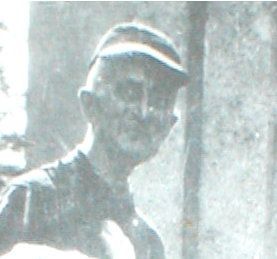
Card Family Members
Card Family Photos
Discover Card family photos shared by the community. These photos contain people and places related to the Card last name.
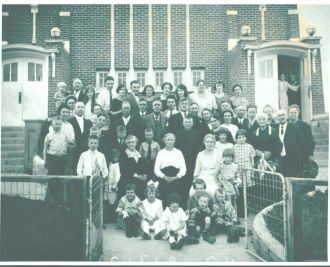
Who are these people? Do you recognize anyone? I think this is a photo from the early 1900's.
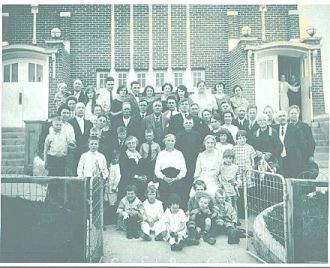

His wife was Abby Francis Smith
Card Family Tree
Discover the most common names, oldest records and life expectancy of people with the last name Card.
Updated Card Biographies

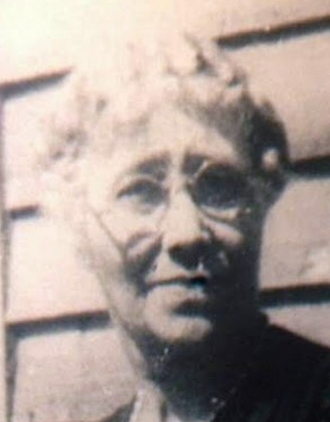

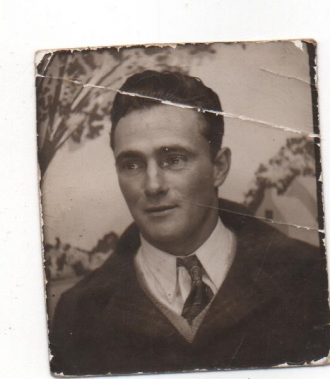
Popular Card Biographies

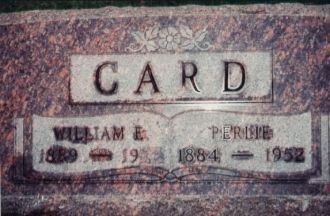




Card Death Records & Life Expectancy
The average age of a Card family member is 73.0 years old according to our database of 3,711 people with the last name Card that have a birth and death date listed.
Life Expectancy
Oldest Cards
These are the longest-lived members of the Card family on AncientFaces.
Other Card Records
Share memories about your Card family
Leave comments and ask questions related to the Card family.
As will become clear, she could, occasionally, be feisty and less than demure, qualities not universally appreciated in the late-Victorian world. I hope she wouldn't have objected to this story.............
My grandfather's name was Adelbert Ephraim Bass. That's seven (7) syllables because, unlike most, the family pronounced the middle name: Eeef` - frah - am...... All in all, his full name was quite a mouthful.
Del and Lela Bass had five boys, all of whom lived well into their majority. The first two were named Harold and Arthur, in that order. It was with the third child, in 1905, that things came to a head. Reportedly, my grandfather turned to mother and child as they lay on the bed shortly after the birth and said, "Well, Lela, I guess we'll name this one after me." Her response was brief.
"Like h_ _ _ we will."
The child was eventually named Raymond Franklin Bass. He was named, in part, after his mother's father, Franklin Card (who, in turn, had been named after Benjamin Franklin.) My grandmother's victory was complete when her following two boys were named Charles and Robert.
I am proud of my grandmother . . . . and grateful.
Raymond Franklin Bass (Jr.)
_____________________________
** In April of 1746, the British under the leadership of Prince William, Duke of Cumberland, decisively defeated the Scots forces of Charles Edward Stuart at the Battle of Culloden. The British were particularly harsh in their treatment of their fallen foe subsequent to the battle. To honor their commander, the Brits renamed a flower "Sweet William". The Scots, not surprisingly, took to calling the same flower "Stinking Billy."
Followers & Sources

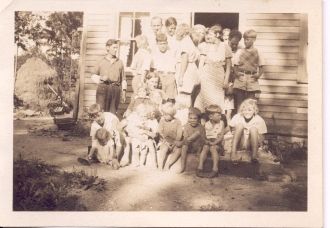


where as Daniel Card of this town has been under the
inspection of the Select men for sum time by reason of
sickness & Card has in sum measure Recovered his health
again and we the Subscribers being Neighbors to him
are of opinion it will be to his advantage to Set him
at liberty again and do hereby Desire your honours to
take the matter into consideration and do as you think
Proper in the matter. Pownal July the 27 -- 1789
Benj'm Gardner
Jos. Williams
Benj'm Card
Jonathon Card
Elisha Parker
David Gardner
Jeremiah Wilson
Philip Aylsworth
Bennedick Corey
Joshua matteson (sic)
_____________________________________________________________
We the Subscribers are of the opinion that the written
Pition aught to be granted therefore. give liberty to the said
Daniel Card that he go to the town clark and git it recorded
that his oversears be Discharged By us
Thos Jewel
Josiah Wright
Ats, Abraham Gardner
Nathaniel Hollis
Isaiah Hollis
the above rec'd for record July the 26 -------- 1789
Per me John Blood"
***********************************************************************
A reading of this document tells us some interesting things. For example, you can get a glimpse of the Pownal accent of 220 years ago:
'Clerk' is 'Clark' (and it is spelled Clark.) 'Get' is 'Git.' The first was and remains the English pronunciation. The 2nd is, I believe, English also (though it has been abandoned by the Saxons -- much like they dropped 'Fall' for 'Autumn.')
It seems that our ancestors, and most of them were rural folks just like those above, spoke like Englishmen 200 years in the past ......... And we can get all this from a dry and unpretentious document written over two centuries and eight generations ago.
***
It also seems that the Selectmen had the right to restrict the freedom of townspeople because of perceived sickness. Today, we would call it a quarantine, but in that case Doctors would be making the decision. This tells us something about the age: Sickness was a serious, a frightening thing to colonials/early Americans ..... and with very good reason:
In the Middle Ages, the Number 2 killer was tooth decay, infection right next to the brain. In the Renaissance (and certainly earlier), dying from broken limbs (again from infection) was not uncommon. I know of very little evidence available to indicate that medical treatment was much different in the 18th Century than the 13th, or the 15th....actually it was probably far worse in those centuries than it was in the 1st. People died from things we don't even think of as particularly dangerous, like measles. They were frightened because sickness, as often as not, meant that you died.
This piqued my interest and I went back and examined our tree as it is presently constituted. I noticed that Daniel Card's brother, Peleg (who was my great great great great grandfather), had died on 6 Sep 1777 and that Peleg's 4 year old daughter, Daniel's niece, died 26 Sep 1777 --- 20 Days Apart. I wondered why a 4-year girl and her middle-aged father (at 37, in 1777, Peleg might very well have been considered middle aged) happened to die so close together. There could be many reasons, of course, among them, disease.... epidemic. Was there an epidemic around at that time in that general area ?
I looked it up and the answer is yes. There was an 'unknown epidemic' that struck America ("especially New England') in 1775. During the years 1775 and 1776, there was a world-wide influenza epidemic. There was also The Great Smallpox Epidemic 1775-1782 in North America, that killed an estimated 125,000 people. Now, since outbreaks of disease do not follow a strict time-line, generally beginning before the spread of the contagion has been recognized, and in reality ending after its eradication or subsidence seems to have occurred, and given that this would be the case in different areas at different times (including relapses) --- the question became: Did these epidemics reach Pownal ? Did one of them kill Peleg Card and little Alice Card ?
I don't know for sure -- though it does seem so likely that I'm tempted to conclude that it must have happened that way --- but, in any case, the town certainly had experienced epidemics/plague in its history. Perhaps causing its citizens to be fearfiul enough to place one of their own under, at best, house-arrest and to reserve the right to make the decision as to his release --- as a political decision --- if not wholly, certainly as a significant element in the matter. (These aren't doctors asking for Dan Card's release, after all...... nor will it be medical professionals making the response to the petition.)
. . . . . . . . . .
We have seen something of life in late 18th Century America in this document: How they talked. Some of what they feared.
They were still not divorced from England, though they were free of her. And they remained the victims of the barbarian invasions and destruction (to be finally completed by Islamic jihad in the 7th and 8th Centuries) of the Ancient World and the nearly complete loss of its medical knowledge, 1300 years before -- at the end of the 5th Century.
All this from 'git' and 'clark' ---- and the neighbors of Daniel Card ---- in a single page comprising a single document in a singular moment of time:
1789 is the year we became a country.
rb